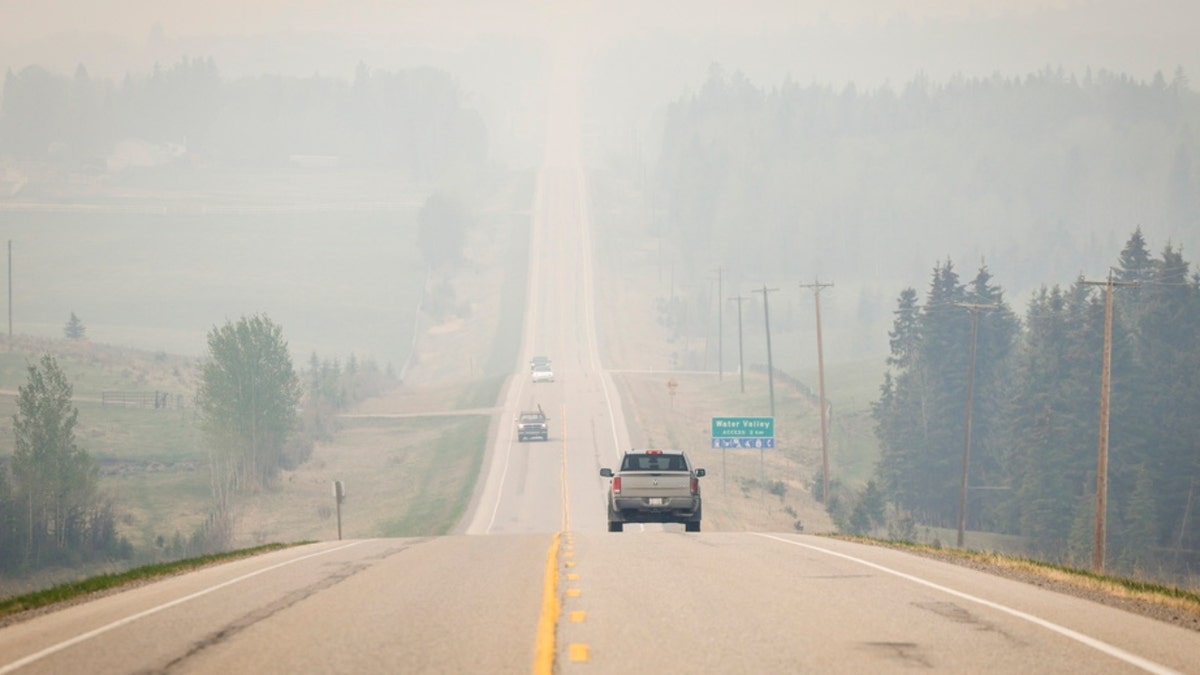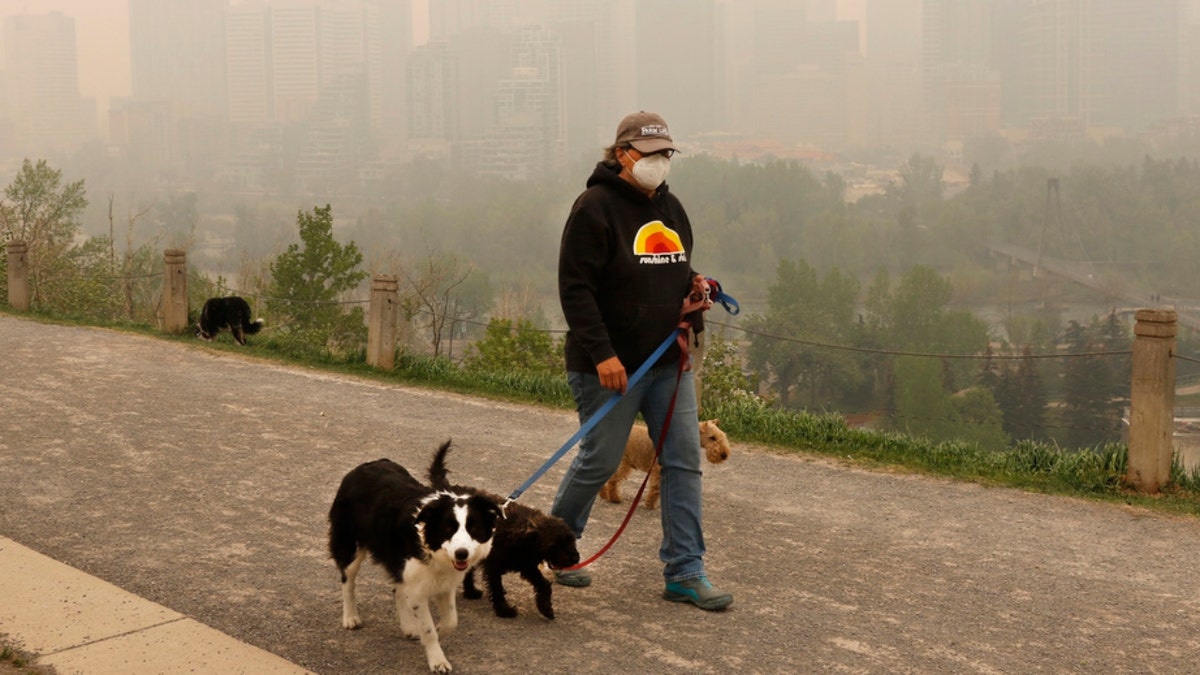High-tech cameras helping firefighters battle wildfires
CalFire and other agencies use a network of over 1,000 cameras statewide to track wildfires before, during and after. The public can now access the network, too.
Wildfire smoke from Canada is impacting states in the northern tier of the U.S. this week.
Offices of the National Weather Service in cities across the country tweeted to warn residents of impacts, including in Seattle, Pittsburgh, the Twin Cities, Bismarck, Topeka, Pendleton, Boulder, Billings, Chicago, Little Rock and elsewhere.
In Boise, Idaho, the office said Thursday that "hazy skies" were in its future.
"Wildfire smoke from Canada will start making its way into eastern Oregon and Southwest Idaho within the next several days," it warned. The Pocatello office said Idahoans should not be surprised to smell the smoke at times.
HIGH-TECH CAMERAS HELPING CALIFORNIA FIREFIGHTERS BATTLE WILDFIRES ARE NOW PUBLICLY ACCESSIBLE

A raven lands on the roof of a barn as thick smoke from wildfires obscures the sun near Cremona, Alberta, Wednesday, May 17, 2023. (Jeff McIntosh/The Canadian Press via AP)
"The smokey, hazy skies are from wildfires in western Canada," the Cleveland office said. "That smoke is drifting through the higher levels of the atmosphere. Current air quality is good to moderate across northern Ohio and Northwest Pennsylvania."
In Des Moines, Iowa, the agency warned about smoky weather conditions leading to "reduced visibilities," lingering into Friday morning.
In Duluth, Minnesota, sinking air with rain caused the smoke there to reach the surface and an Air Quality Alert was in effect for much of the northeastern region of the state.

In this photo provided by the Government of Alberta, Canada, the Eagle Wildfire burns, Saturday, May 13, 2023. (Government of Alberta Fire Service/The Canadian Press via AP)
Fox Weather reported that such alerts were also in place in Washington state and Montana, noting that visibility may drop as low as a quarter mile in areas of Montana, Minnesota and the Dakotas.
NEW MEXICO WILDFIRE LEAVES RESIDENTS FEARING 2022 REPEAT: 'NO, NOT AGAIN'
The offices also shared images on Twitter of red-tinged suns and skies shrouded in smoke.

Thick smoke from wildfires blankets the landscape near Water Valley, Alberta, about 50 miles northwest of Calgary, Tuesday, May 16, 2023. (Jeff McIntosh/The Canadian Press via AP)
While the more than 90 fires blaze in Canada's Alberta province, the Albany, New York, office said there could be some smoke aloft, and the National Weather Service in Boston said to "say goodby to those beautiful blue skies."
Fires in western Canada have forced the evaluations of tens of thousands.

Wearing a protective mask, dog walker Leslie Kramer ventures out as heavy smoke from northern Alberta forest fires comes south to blanket the downtown area in Calgary, Canada, Tuesday, May 16, 2023. (Larry MacDougal/The Canadian Press via AP)
CLICK HERE TO GET THE FOX NEWS APP
A national situation report from the Government of Canada says there are currently more than 30 uncontrolled wildfires. The province has declared a state of emergency in response to the fires.
Wildfire smoke can have adverse health impacts, hurting a person's eyes, irritating the respiratory system and worsening chronic heart and lung diseases, according to the Centers for Disease Control and Prevention.











































